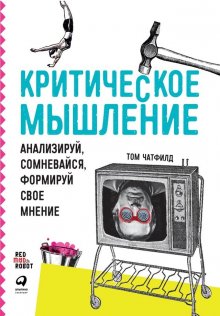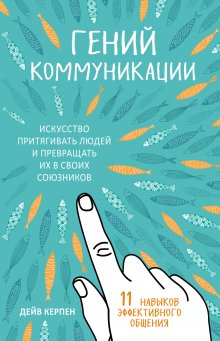Джейми Курц - Путешествие: психология счастья. Лайфхаки для отличного отпуска

Все авторские права соблюдены. Напишите нам, если Вы не согласны.
Описание книги "Путешествие: психология счастья. Лайфхаки для отличного отпуска"
Описание и краткое содержание "Путешествие: психология счастья. Лайфхаки для отличного отпуска" читать бесплатно онлайн.
7
Dalia Etzion. Annual Vacation: Duration of Relief from Job Stressors and Burnout // Stress and Health 16 (2003). P. 213–226; Jessica de Bloom, Sabine A. E. Geurts, and Michiel A. J. Kompier. Effects of Short Vacations, Vacation Activities and Experiences on Employee Health and Well-Being // Stress Health 28 (2012). P. 305–318; Ondrej Mitas, Careen Yarnal, Reginald Adams, and Nilam Ram. Taking a “Peak” at Leisure Travelers’ Positive Emotions // Leisure Sciences 34 (2012). P. 115–135.
8
William W. Maddux and Adam D. Galinsky. Cultural Borders and Mental Barriers: The Relationship Between Living Abroad and Creativity // Journal of Personality and Social Psychology 96 (2009). P. 1047–1061; Julia Zimmermann and Franz J. Neyer. Do We Become a Different Person When Hitting the Road? Personality Development of Sojourners // Journal of Personality and Social Psychology 105 (2013). P. 515–530; Angela M. Durko and James F. Petrick. Family and Relationship Benefits of Travel Experience: A Literature Review // Journal of Travel Research 52 (2013). P. 720–730; Niels van de Ven, Leon van Rijswijk, and Michael M. Roy. The Return Trip Effect: Why the Return Trip Often Seems to Take Less Time // Psychonomic Bulletin and Review 18 (2011). P. 827–832; Leaf Van Boven and Thomas Gilovich. To Do or to Have? That is the Question // Journal of Personality and Social Psychology 85 (2003). P. 1193–1202; Karl Pillemer. 30 Lessons for Living: Tried and True Advice from the Wisest Americans. N. Y.: Hudson Street Press, 2011; Bronnie Ware. The Top Five Regrets of the Dying: A Life Transformed by the Dearly Departing. Carlsbad, CA: Hay House, 2012.
9
Обсуждение проблемы недостаточного взаимодействия и обмена мнениями между психологами и исследователями в области туризма. Cм.: Svein Larsen. Aspects of a Psychology of the Tourist Experience // Scandinavian Journal of Hospitality and Tourism 7 (2007). P. 7–18.
10
От англ. travel – путешествие (путешествовать).
11
Цит. по изд.: Хьюмс Дж. Правила Черчилля. Идеи, наблюдения, афоризмы. М.: Манн, Иванов и Фербер, 2013.
12
Daniel T. Gilbert. Stumbling on Happiness. N. Y.: Vintage, 2006; Adam Waytz, Hal E. Hershfield and Diana I. Tamir. Mental Simulation and Meaning in Life // Journal of Personality and Social Psychology 108 (2015). P. 336–355.
13
James G. March. Bounded Rationality, Ambiguity, and the Engineering of Choice // Bell Journal of Economics 9 (1978). P. 597–608.
14
Timothy D. Wilson and Daniel T. Gilbert. Affective Forecasting: Knowing What to Want // Current Directions in Psychological Science 14 (2005). P. 131–134.
15
Daniel T. Gilbert, Elizabeth C. Pinel, Timothy D. Wilson, Stephen J. Blumberg, and Thalia P. Wheatley. Immune Neglect: A Source of Durability Bias in Affective Forecasting // Journal of Personality and Social Psychology 75 (1998). P. 617–638; George F. Loewenstein, Ted O’Donoghue, and Matthew J. Rabin. Projection Bias in Predicting Future Utility // Quarterly Journal of Economics 118 (2003). P. 1209–1248; Barbara A. Mellers and A. Peter McGraw. Anticipated Emotions as Guides to Choice // Current Directions in Psychological Science 10 (2001). P. 210–214; Timothy D. Wilson, Thalia P. Wheatley, Jonathan M. Meyers, Daniel T. Gilbert, and Danny Axsom. Focalism: A Source of Durability Bias in Affective Forecasting // Journal of Personality and Social Psychology 78 (2000). P. 821–836.
16
Dale W. Griffin, David Dunning, and Lee Ross. The Role of Construal Processes in Overconfident Predictions About the Self and Others // Journal of Personality and Social Psychology 59 (1990). P. 1128–1139.
17
Philip Brickman, Dan R. Coates, and Ronnie Janoff-Bulman. Lottery Winners and Accident Victims: Is Happiness Relative? // Journal of Personality and Social Psychology 36 (1978). P. 917–927.
18
Harry Helson. Current Trends and Issues in Adaptation-Level Theory //American Psychologist 19 (1964). P. 26–38; Allen Parducci. Happiness, Pleasure, and Judgment: The Contextual Theory and Its Applications. Hillsdale, NJ: Lawrence Erlbaum, 1995; Ed Diener, Richard E. Lucas, and Christie Napa Scollon. Beyond the Hedonic Treadmill: Revising the Adaptation Theory of Well-Being // American Psychologist 61 (2006). P. 305–314.
19
Kennon M. Sheldon and Sonja Lyubomirsky. The Challenge of Staying Happier: Testing the Happiness Adaptation Prevention Model // Personality and Social Psychology Bulletin 38 (2012). P. 670–680.
20
Bill Bryson. Introduction to The Best American Travel Writing. Boston: Houghton Mifflin, 2000.
21
Alexandra Horowitz. On Looking: A Walker’s Guide to the Art of Observation. N. Y.: Simon & Schuster, 2014. P. 30.
22
Jessica De Bloom, Sabine A. E. Geurts, and Michiel A. J. Kompier. Vacation (After-) Effects on Employee’s Health and Well-Being, and the Role of Vacation Activities, Experiences and Sleep // Journal of Happiness Studies 14 (2013). P. 613–633.
23
Timothy D. Wilson and Daniel T. Gilbert. Explaining Away: A Model of Affective Adaptation // Perspectives on Psychological Science 3 (2008). P. 370–386.
24
Несколько на самом деле поразительных примеров несовпадения реального и идеального можно найти в: Matt Hershberger. Hilarious Photos Show the Difference Between Travel Expectations and Travel Reality. February 19, 2016. URL: www.matadornetwork.com/life/hilarious-photos-show-difference-travel-expectations-travel-reality
25
David A. Schkade and Daniel Kahneman. Does Living in California Make People Happy? A Focusing Illusion in Judgments of Life Satisfaction // Psychological Science 9 (1998). P. 340–346; Timothy D. Wilson, Thalia P. Wheatley, Jonathan M. Meyers, Daniel T. Gilbert, and Danny Axsom. Focalism: A Source of Durability Bias in Affective Forecasting // Journal of Personality and Social Psychology 78 (2000). P. 821–836.
26
Derrick Wirtz, Justin Kruger, Christie N. Scollon, and Ed Diener. What to Do on Spring Break? The Role of Predicted, On-line, and Remembered Experience in Future Choice // Psychological Science 14 (2003). P. 520–524.
27
Yaavoc Trope and Nira Liberman. Construal Level Theory // Psychological Review 110 (2003). P. 403–421.
28
Katherine L. Milkman, Todd Rogers, and Max H. Bazerman. I’ll Have the Ice Cream Soon and the Vegetables Later: A Study of Online Grocery Store Purchases and Lead Time // Marketing Letters 21 (2010). P. 17–35; Katherine L. Milkman, Todd Rogers, and Max H. Bazerman. Highbrow Films Gather Dust: Time-Inconsistent Preferences and Online DVD Rentals // Management Science 55 (2010). P. 1047–1059.
29
Thomas Gilovich, Margaret Kerr, and Victoria H. Medvec. Effect of Temporal Perspective on Subjective Confidence // Journal of Personality and Social Psychology 64 (1993). P. 552–560.
30
Timothy D. Wilson, Thalia P. Wheatley, Jonathan M. Meyers, Daniel T. Gilbert, and Danny Axsom. Focalism: A Source of Durability Bias in Affective Forecasting // Journal of Personality and Social Psychology 78 (2000). P. 821–836.
31
Daniel L. Schacter. Memory // In Foundations of Cognitive Science, ed. Michael I. Posner. Cambridge, MA: MIT Press, 1989. P. 683–725.
32
Terence R. Mitchell, Leigh Thompson, Erika Peterson, and Randy Cronk. Temporal Adjustment of the Evaluation of Events: The “Rosy View” // Journal of Experimental Social Psychology 33 (1997). P. 421–448.
33
Robert I. Sutton. Feelings about a Disneyland Visit: Photographs and Reconstruction of Bygone Emotions // Journal of Management Inquiry 1 (1992). P. 278–287.
34
George Loewenstein. Out of Control: Visceral Influences on Behavior // Organizational Behavior and Human Decision Processes 65 (1996). P. 272–292.
35
Kristi Lemm and Derrick Wirtz. Exploring “Rosy” Bias and Goal Achievement in Marathon Runners // Journal of Sport Behavior 36 (2013). P. 66–81; Eran Chajut, Avner Caspi, Rony Chen, Moshe Hod, and Dan Ariely. In Pain Thou Shalt Bring Forth Children: The Peak-and-End Rule in Recall of Labor Pain // Psychological Science 25 (2014). P. 2266–2271.
36
Leon Festinger. A Theory of Cognitive Dissonance. Redwood City, CA: Stanford University Press, 1957.
37
W. Richard Walker, John J. Skowronski, and C. P. Thompson. Life is Pleasant – and Memory Helps to Keep It That Way! // Review of General Psychology 7 (2013). P. 203–210.
38
Olga Khazan. Why Mistakes Are Often Repeated // The Atlantic, February 25, 2016. URL: www.theatlantic.com/science/archive/2016/02/why-mistakes-are-oftenrepeated/470778/?utm_source=SFFB
39
Derrick Wirtz, Justin Kruger, Christie N. Scollon, and Ed Diener. What to Do on Spring Break? The Role of Predicted, On-line, and Remembered Experience in Future Choice // Psychological Science 14 (2003). P. 520–524.
40
Alain De Botton. The Art of Travel. N. Y.: Pantheon, 2002. P. 19.
41
Цит. по изд.: Боттон А. де. Искусство путешествовать. М.: Эксмо, 2013.
42
Kennon M. Sheldon and Sonja Lyubomirsky. Achieving Sustainable Gains in Happiness: Change Your Actions, Not Your Circumstances // Journal of Happiness Studies 7 (2006). P. 55–86.
43
Daniel T. Gilbert, Matthew A. Killingsworth, Rebecca N. Eyre, and Timothy D. Wilson. The Surprising Power of Neighborly Advice // Science 323 (2009). P. 1617–1619.
44
Dale W. Griffin, David Dunning, and Lee Ross. The Role of Construal Processes in Overconfident Predictions About the Self and Others // Journal of Personality and Social Psychology 59 (1990). P. 1128–1139.
45
Sheena S. Iyengar and Mark R. Lepper. When Choice is Demotivating: Can One Desire Too Much of a Good Thing? // Journal of Personality and Social Psychology 79 (2000). P. 995–1006.
46
Timothy D. Wilson and Jonathan S. Schooler. Thinking Too Much Can Reduce the Quality of Preferences and Decisions // Journal of Personality and Social Psychology 60 (1991). P. 181–192.
47
Neal Roese. Counterfactual Thinking // Psychological Bulletin 121 (1997). P. 133–148.
48
Sheena S. Iyengar, Rachael E. Wells, and Barry Schwartz. Doing Better but Feeling Worse: Looking for the “Best” Job Undermines Satisfaction // Psychological Science 17 (2006). P. 143–150.
49
Barry Schwartz, Andrew Ward, John Monterosso, Sonja Lyubomirsky, Katherine White, and Darrin R. Lehman. Maximizing Versus Satisficing: Happiness is a Matter of Choice // Journal of Personality and Social Psychology 83 (2002). P. 1178–1197.
50
Все включено (англ.).
51
Barry Schwartz. The Paradox of Choice: Why More Is Less. N. Y.: Ecco, 2004.
52
Простая попытка привести примеры проблемы слишком большого выбора ставит нас перед этой самой проблемой. Amazon.com предлагает свыше 200 000 вариантов наручных часов, более 50 000 вариантов чемоданов и больше 5000 щеток для мытья унитаза. В местном супермаркете вам, возможно, предложат более 200 видов сухих завтраков. Выпуск потребительских отчетов 2013 года, посвященный машинам, описывал 281 модель. Несколько примеров, связанных с путешествиями: в настоящее время на Airbnb можно найти 16 000 предложений о найме жилья в Нью-Йорке, а на Yelp больше 51 000 обозрений ресторанов. Даже мой небольшой городок Шарлотсвилл, Виргиния, может похвастаться 240 предложениями о найме жилья и 507 ресторанами. – Прим. автора.
53
Jeong-Yeol Park and Soo Cheong Jang. Confused by Too Many Choices? Choice Overload in Tourism // Tourism Management 35 (2013). P. 1–23.
54
Однако обратите внимание на большой разрыв между условиями выбора из десяти или из двадцати вариантов. Лучшие, по-видимому, находятся где-то в этих пределах. В другом исследовании, в котором участникам предлагалось продегустировать и оценить разные сорта клубничного варенья или шоколада, было обнаружено, что дегустация шести вариантов приводит к удовлетворительному выбору, в то время как двадцать четыре или тридцать – это слишком много. См.: Iyengar and Lepper. When Choice is Demotivating. Can One Desire Too Much of a Good Thing? // Journal of Personality and Social Psychology 79 (2000). P. 995–1006. И все же похоже, что двадцать вариантов того, как провести отпуск – это действительно ужасно много.
Подписывайтесь на наши страницы в социальных сетях.
Будьте в курсе последних книжных новинок, комментируйте, обсуждайте. Мы ждём Вас!
Похожие книги на "Путешествие: психология счастья. Лайфхаки для отличного отпуска"
Книги похожие на "Путешествие: психология счастья. Лайфхаки для отличного отпуска" читать онлайн или скачать бесплатно полные версии.
Мы рекомендуем Вам зарегистрироваться либо войти на сайт под своим именем.
Отзывы о "Джейми Курц - Путешествие: психология счастья. Лайфхаки для отличного отпуска"
Отзывы читателей о книге "Путешествие: психология счастья. Лайфхаки для отличного отпуска", комментарии и мнения людей о произведении.











